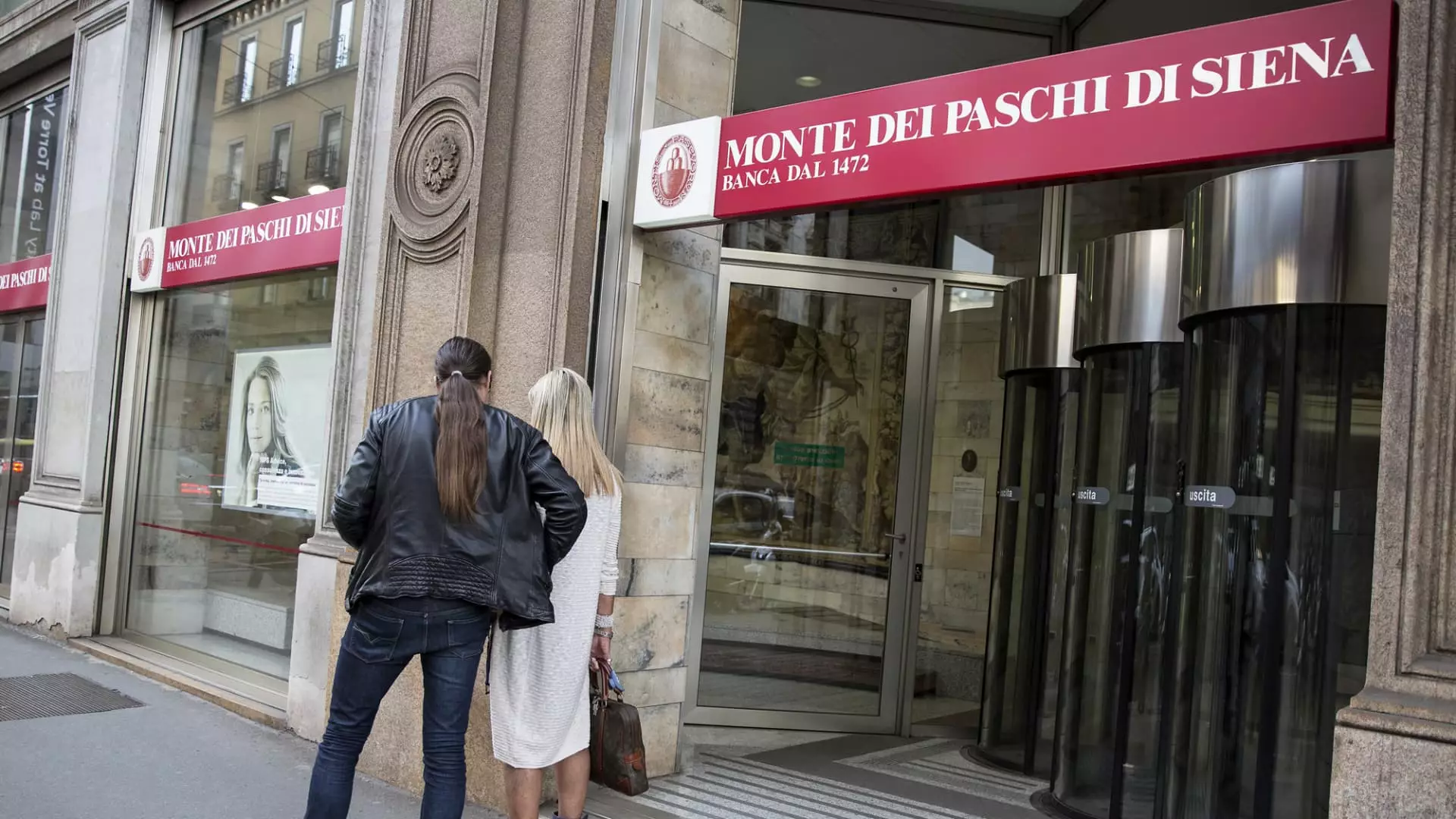Monte dei Paschi di Siena, the legendary elder statesman of banking, has thrown caution to the wind with its ambitious plan to acquire Mediobanca for a staggering €13 billion ($14.3 billion). Despite the evident storm clouds of market turbulence, the bank’s CEO, Luigi Lovaglio, stands resolutely by this bold proposition, proclaiming that “the market situation will not impact our deal.” This declaration reflects not just confidence, but a somewhat reckless audacity in the face of reality. The acquisition signals a desire to reinforce its prominence; however, it raises serious questions about whether this initiative is genuinely grounded in sound strategy or merely hubris by a bank long past its zenith.
Turning a Blind Eye to Market Realities
Often, monumental decisions stemming from historic institutions like Monte dei Paschi invite skepticism. With Mediobanca denouncing the offer as “destructive” and lacking financial rationale, it is troubling that Lovaglio appears undeterred. The contemporary banking landscape, which is rife with volatility, should serve as a red flag. The mere fact that major players including British private equity firms and fintech companies are pulling back from their respective deals indicates that Monte dei Paschi may be echoing the sentiments of an old guard that fears innovation.
Moreover, the banking sector is undergoing transformative shifts. The rise of digital banking and diversified financial services must not be overlooked. Instead of rushing into an acquisition that many analysts warn could come with limited synergies, perhaps Monte dei Paschi should explore more strategic, innovative avenues that align with current market demands. The question arises: is Monte dei Paschi really “in control of our destiny,” or is it clinging to an outdated paradigm that prioritizes size over sustainability?
Hamstrung by Its Own Historical Legacy
Monte dei Paschi’s recent history has been marked by turmoil, including a government bailout in 2017 when it failed to secure much-needed capital. Fast forward to today, and the Italian government has drastically reduced its stake, leaving the bank vulnerable. The irony is that, in pursuing an acquisition that echoes its historical stature, Monte dei Paschi might be repeating the same mistakes of the past. Analysts are divided, with some recognizing potential opportunities in a unified approach, while others, including Barclays, are critical, suggesting that additional spending to win over Mediobanca’s institutional shareholders could be financially detrimental.
This merger proposal comes amid a wave of consolidation in Italian banking, with UniCredit also seeking greater reach by targeting Banco BPM. Yet, unlike its contemporaries, Monte dei Paschi’s drive seems driven more by desperation rather than strategic foresight. Is it really a case of “first mover advantage,” or is it actually a plunge into an abyss of fiscal uncertainty?
A Struggle for Relevance in a Rapidly Changing Landscape
The truth is that the financial ecosystem is no longer one where traditional banking can thrive without adapting to new realities. The rapid digitization of services and the emergence of neo-banks have forever altered customer expectations. Lovaglio’s assertion that this acquisition will put preeminence back into Monte dei Paschi’s portfolio appears decidedly shortsighted against the backdrop of evolving consumer preferences.
What seems evident is that the push for consolidation may not necessarily yield the desired outcomes. If anything, it risks alienating a fresh base of forward-thinking investors. For a bank that boasts over 500 years of history, it is increasingly evident that clinging to antiquated practices and grand ambitions may lead only to an arduous battle for relevance.
Monte dei Paschi’s eagerness to dive into a merger at a financially precarious moment might ironically place it at greater risk, jeopardizing not just its future, but also a legacy that has, until now, been characterized by remarkable resilience amidst adversity. In a sector that thrives on adaptability and innovation, the reliance on historical stature may prove to be its Achilles’ heel.

